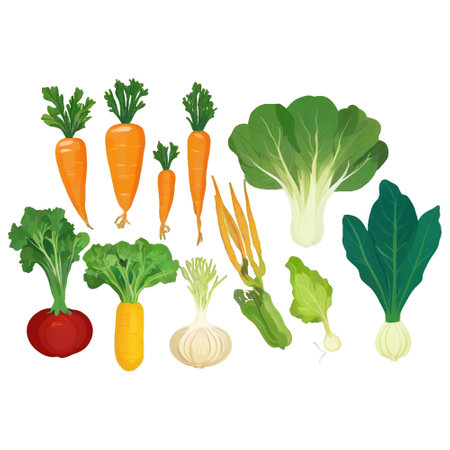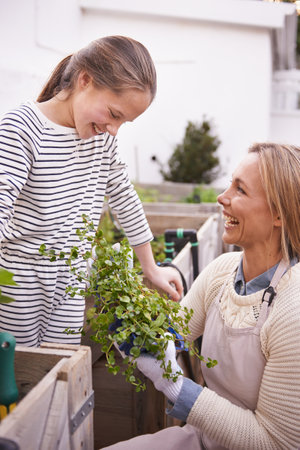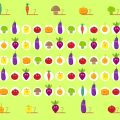Introduction to Organic Allotment Gardening in the UK
Allotment gardening is a time-honoured British tradition, with roots stretching back to the days of the Industrial Revolution. Back then, plots of land were allocated to working families so they could grow their own vegetables and supplement their diets. Even today, if you stroll through most towns and cities in the UK, you’ll spot clusters of allotments tucked away behind railway lines or nestled at the edge of parks, each plot lovingly tended by its keeper. The relevance of allotment gardening has only grown in recent years, as more people seek a sense of community, connection to nature, and an escape from the pressures of modern urban life. In particular, there’s been a noticeable shift towards organic methods, with many growers now favouring natural approaches over chemical solutions. This move reflects not just environmental concerns, but also a desire for healthier produce and a more sustainable way of living. As we look at the community and social aspects tied to these green spaces, it’s clear that organic allotment gardening isn’t just about what’s on your plate—it’s about coming together, sharing wisdom between generations, and nurturing both the land and our relationships.
Building Community Through Allotment Gardening
In the UK, organic allotment gardening has always been more than just growing spuds and beans; it’s a cherished tradition that brings people together. The humble allotment plot, often tucked behind rows of terraced houses or on the edge of town, serves as a social hub where neighbours from all walks of life gather. These shared spaces foster a genuine sense of community, bridging gaps between generations and backgrounds in a way that is uniquely British.
Neighbourhood Bonds on the Plot
When you spend your weekends tending to your runner beans or swapping seeds over the garden fence, it’s hard not to strike up a conversation with the chap in the next plot or offer a hand to someone struggling with their weeding. This regular interaction is the backbone of many local friendships. Shared challenges—such as battling slugs or celebrating a bumper crop—create natural talking points that lead to deeper connections.
Intergenerational Connections
Allotments are one of those rare places where age really is just a number. You’ll often find seasoned gardeners passing down tips to younger enthusiasts, or children learning about composting from their grandparents. The following table highlights some of the ways different generations contribute to and benefit from communal allotment life:
| Generation | Contribution | Benefit |
|---|---|---|
| Youth & Children | Energy for digging, curiosity, willingness to learn | Practical gardening skills, environmental awareness |
| Working Adults | Organisation of events, sharing resources/tools | Stress relief, healthy produce, social network |
| Seniors/Elders | Gardening wisdom, storytelling, mentoring role | Purposeful activity, companionship, legacy building |
A Strong Sense of Belonging
The beauty of an allotment site lies not just in its rows of vegetables but in the patchwork of lives woven together by shared soil and effort. People look out for each other here—whether it’s watering someone else’s tomatoes while they’re away or organising harvest festivals and seed swaps. This communal spirit nurtures a strong sense of belonging that extends beyond the boundaries of the plot itself. In many ways, these green spaces become an extended family for those involved—a testament to how gardening can cultivate not just plants but meaningful relationships as well.

3. The Role of Allotment Societies and Local Networks
When it comes to organic allotment gardening in the UK, the beating heart of every site is often its society or local association. These committees aren’t just there for show—they are the backbone that keeps everything ticking along smoothly. Most allotments have a committee made up of fellow plot holders, volunteering their time to oversee day-to-day management, allocation of plots, and communication with local councils. Their experience and collective wisdom help preserve not just the physical space but the community spirit that makes allotment life so rewarding.
The Importance of Committees and Associations
Committees play a key role in maintaining standards on the site, organising events, and resolving disputes between gardeners. It’s not uncommon for longstanding members to take newcomers under their wing, sharing tried-and-tested tips handed down over generations—how to deal with slugs organically or when to start your runner beans for best results. Many societies also run seed swaps, tool shares, and even communal sheds stocked with essentials at cost price. This neighbourly approach saves money, reduces waste, and fosters a sense of belonging that extends well beyond the garden gate.
Mutual Support Among Plot Holders
The true magic of allotment gardening lies in its culture of mutual support. If you’re struggling with persistent bindweed or your brassicas have come under attack from pigeons, there’s always someone nearby with advice or spare netting to lend. During difficult seasons—be it drought or deluge—the camaraderie among plot holders shines brightest, with folk rallying together to water each other’s plants or share surplus harvests. In times of need, it’s common for someone to pop over and give a hand turning compost or even mow an overgrown path for an elderly gardener.
The Enduring Value of Local Networks
Allotment societies often build strong links with other community groups, local schools, and environmental organisations. They might host open days or workshops on organic pest control, inviting the wider neighbourhood onto the site and breaking down barriers between ‘old hands’ and newcomers alike. Over a cuppa in the communal hut or while pottering about on neighbouring plots, bonds form that last a lifetime—a living testament to the enduring value of these grassroots networks in nurturing both land and relationships across generations.
4. Exchanging Knowledge and Traditional Wisdom
If you’ve ever spent a lazy afternoon on a British allotment, you’ll know that the real treasures are not always in the soil, but in the stories shared between plot holders. The passing on of tips, techniques, and gardening know-how is a cherished tradition here, often exchanged over the garden fence or at the shed door. It’s a scene familiar up and down the country: someone kneeling beside a row of runner beans, pausing to chat with a neighbour who’s just wandered over with a steaming mug of tea.
This sharing isn’t just about what grows best in heavy clay or how to keep pigeons off your brassicas—it’s about community memory. Many older gardeners will tell you, “My dad taught me that trick,” or “That’s how we did it during the war.” This sort of wisdom, handed down through generations, gives allotment gardening its rich sense of continuity and belonging.
Below is a snapshot of some typical knowledge exchanges you might hear on an organic allotment:
Topic |
Common Advice Shared |
Source/Tradition |
|---|---|---|
| Pest Control | Use crushed eggshells around seedlings to deter slugs | Passed down from older plot holders since WWII rationing days |
| Soil Health | Add well-rotted manure each autumn for richer soil | Local farming traditions and family practices |
| Sowing Times | “Don’t sow your spuds before Good Friday” | Old English folklore and agricultural calendars |
| Composting Tips | Avoid putting cooked food in compost heaps—attracts rats! | Neighbourly warnings based on hard-won experience |
| Seed Saving | Swap saved seeds at the end of season with fellow gardeners | Community-organised seed swaps and personal collections |
This gentle passing-on of knowledge is more than just practical; it strengthens bonds between generations and fosters a sense of responsibility for sustaining these traditions. There’s always room for new ideas—organic gardening itself has evolved thanks to such conversations—but there remains deep respect for the tried-and-tested methods that have fed families and communities for decades. In this way, British allotments become living libraries, where every conversation is another page added to the collective story of growing together.
5. Wellbeing and Social Benefits
Organic allotment gardening in the UK is more than just a pastime—it’s a genuine lifeline for many, especially when it comes to personal wellbeing and social connection. For years, folks from all walks of life have flocked to their local allotments, not only to grow their own produce but also to nurture their mental health and enjoy a sense of community that can be hard to find elsewhere.
Mental Health and Mindfulness
There’s something wonderfully grounding about digging your hands into the earth, sowing seeds, and watching them grow. Many gardeners say the simple act of tending to their plot helps clear the mind and ease anxiety. The gentle routine of watering, weeding, and harvesting offers a form of mindfulness that’s increasingly valuable in today’s fast-paced world. As the old saying goes, “A problem shared is a problem halved”—and sometimes, sharing those problems with the soil makes all the difference.
Reducing Isolation and Fostering Friendships
Loneliness is a growing concern in many parts of Britain, particularly among older generations or those living alone. Allotment sites naturally bring people together. You’ll often see neighbours leaning over the fence for a natter or exchanging tips on how best to keep the slugs at bay. Over time, these casual chats blossom into real friendships. Annual events like harvest festivals or communal work days further cement these bonds, making everyone feel part of something bigger than themselves.
A Healthier Lifestyle for All Ages
Beyond the mental perks, organic allotment gardening encourages healthier habits across the board. Spending time outdoors ensures regular fresh air and gentle exercise—far better than being cooped up indoors. Growing your own fruit and veg means more nutritious food on the table and less reliance on processed supermarket fare. Children who get involved learn where their food comes from and pick up healthy habits early on, while older gardeners benefit from keeping active in body and mind well into retirement.
In essence, organic allotment gardening in the UK is about much more than plants; it’s about nurturing people too—helping everyone flourish in their own way amidst our ever-changing society.
6. Community Events and Shared Activities
When it comes to allotment life in the UK, the real magic often happens beyond the beds and borders. The plot isn’t just a patch of land; it’s a focal point for community gatherings and shared traditions that have been passed down through generations. Community events, from humble seed swaps in early spring to lively autumn shows bursting with prize-winning pumpkins, are at the heart of this culture. These occasions provide much more than just an opportunity to exchange produce or gardening tips—they’re social lifelines, especially for those who might otherwise feel isolated.
Many allotment sites host regular seed swaps, where old hands and newcomers alike come together to trade seeds, stories, and advice. It’s not unusual to see neighbours sharing heirloom varieties that have been nurtured on site for decades—a living link to local history and tradition. And as autumn approaches, excitement builds for the annual allotment show. Here, growers proudly display their finest fruit and veg, compete in friendly rivalry, and celebrate the season’s hard work with tea, cakes, and plenty of laughter.
These events are rarely just about growing things; they’re about growing together. Many allotments support local charities by donating surplus crops to food banks or running open days to raise funds for good causes. There are also communal work parties—sometimes called “dig-ins”—where everyone pitches in to maintain shared paths or plant new hedgerows. Such activities foster a sense of belonging and collective responsibility that extends well beyond the garden gate.
If you ask any seasoned plot holder, they’ll tell you: these social gatherings keep the spirit of the allotments alive. They provide a chance for people of all backgrounds—young families, retirees, new arrivals—to forge friendships over cups of builder’s tea and the satisfying ache of a day spent working side by side. In these moments, you realise that organic gardening is as much about nurturing community as it is about tending soil.


